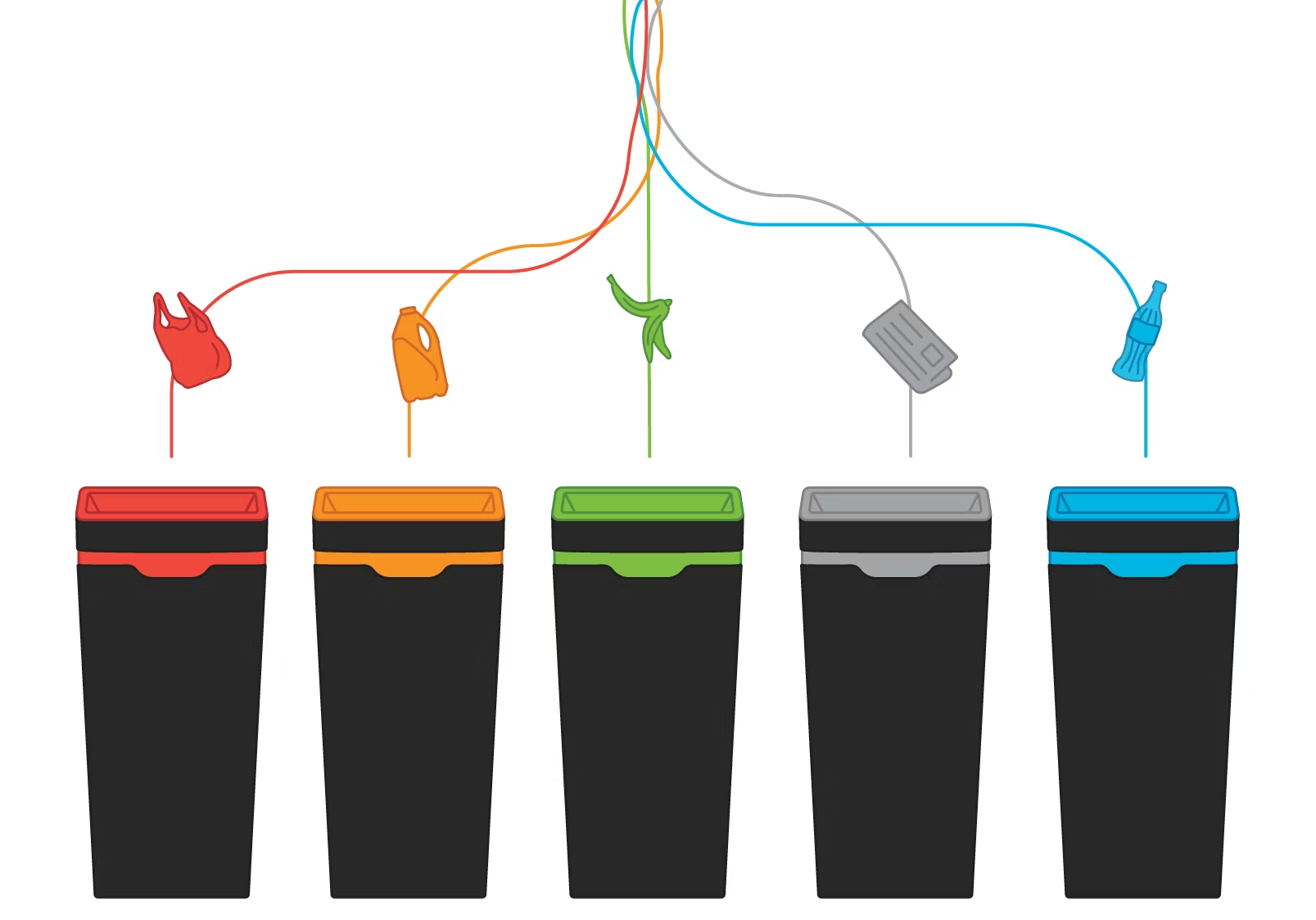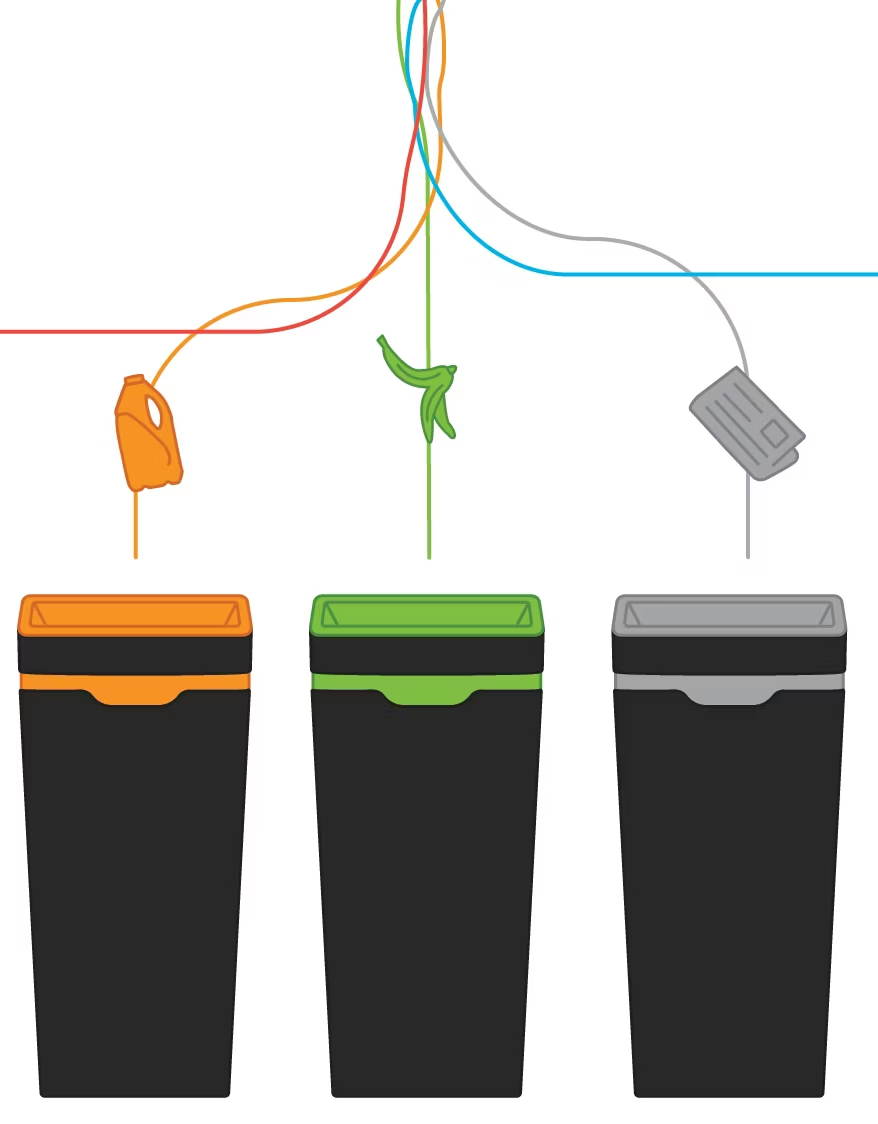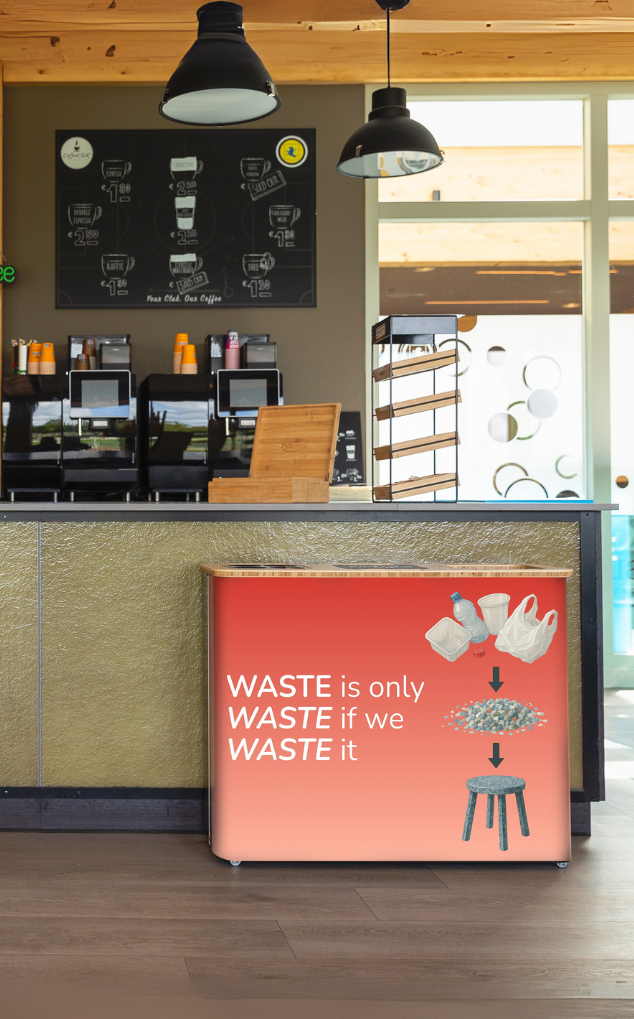

Blogs


Blogs

The meaning of circular entrepreneurship
You’ve probably experienced it: the right bins are in place, everything seems organized… yet coffee cups end up in the paper bin or food scraps in the residual waste. Not because people do it on purpose, but because they’re unsure. That’s where things go wrong.
Without clear communication, waste sorting becomes a guessing game leading to mistakes, contaminated waste streams, and missed sustainability opportunities. At BINBIN, we want to prevent that. So let’s explore how effective communication can improve waste sorting.
Good intentions alone aren’t enough, clear instructions are!
Most people want to help sort waste. But if the system is illogical or the messaging vague, they tune out. Especially in busy workplaces or public spaces decisions must be quick, without overthinking. When sorting becomes secondary, valuable resources are lost.
Clear communication makes proper sorting easy
When people understand what to do and why it matters, waste sorting becomes a habit. That requires ongoing communication that:

How it works
1. Smart visual communication speeds decision‑making
Tiny text or confusing icons don’t work people decide in seconds. Instead, use:
This lowers the barrier so sorting becomes almost effortless.
2. Nudging: Give a friendly push toward the right choice
Sometimes a subtle nudge helps people choose correctly without bans or pressure. Think:
These small touches make choosing right effortless and fun.
3. Make the story tangible and visible
Sorting waste only motivates if people see the impact. Share messages like:
Show what good sorting brings: fewer trash leftovers, lower costs, and inspiring circular projects.
4. Keep communicating creatively
One poster isn’t enough. Sustainable habits need repetition. Try:
More variety and repetition = better memory.
Clear communication leads to less residual waste and gets staff and visitors truly involved. That delivers cleaner waste streams, higher recycling rates, lower disposal costs and a workplace that thinks and acts sustainably
Want your waste sorting to really work?
The solution is simpler than you think: start with clear communication. Not once, but consistently. Not preachy, but understandable. And always: practical, positive, and easy.
At BINBIN, we’re champions of behavioral change through simple communication. Want to chat?
Schedule a meeting with our specialist here:
Other articles